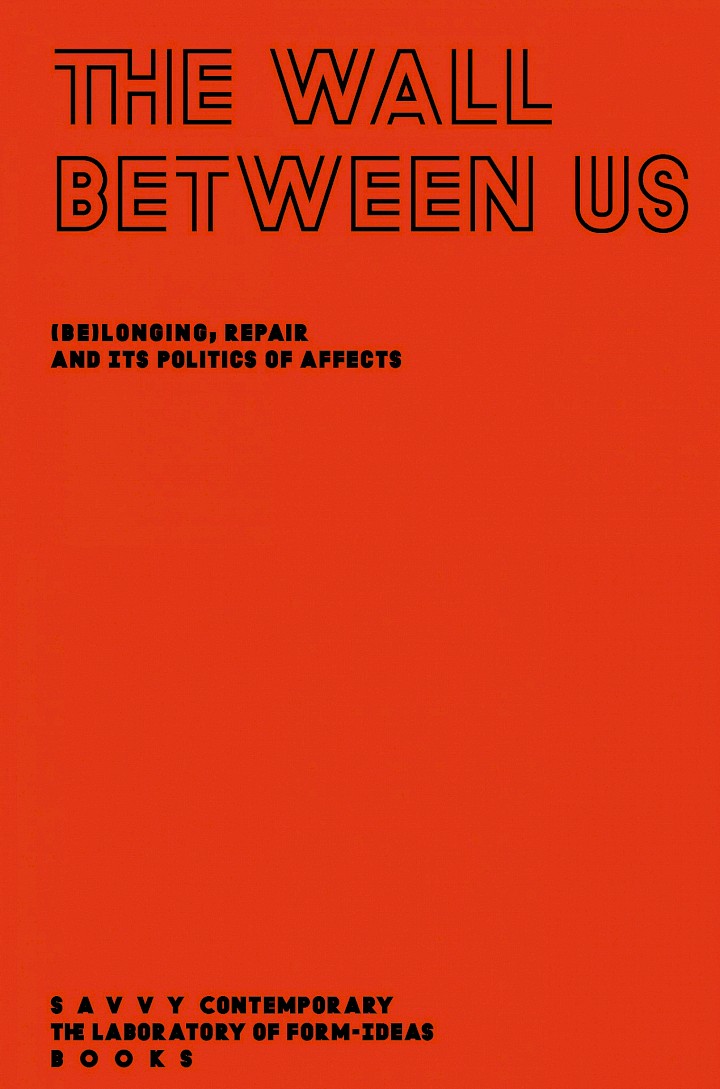
The series brings together SAVVY Books and Archive Books in a collaboration based on the shared interest in a multiplicity of knowledges beyond the Western canon and a commitment to foster critical discussions and forge new collaborations and coalitions. We like to think of the books in this series as “borderlands,” to use an expression by Chicana poet and feminist Gloria Anzaldúa, by which we mean spaces where “a new story to explain the world and our participation in it” can be elaborated and told; spaces where epistemological disobedience (Walter Mignolo) and divergent thinking can be practiced.
The Wall Between Us originates from “Yet Untitled”: a series of workshops organized by SAVVY Contemporary with Ottonella Mocellin and Nicola Pellegrini in Berlin and Prague, and activated by members of the Vietnamese diaspora to investigate the poetics of their relationships. With processes of (un)learning, the project transformed into “The Wall Between Us – (Be) Longing, Repair and Its Politics Of Affects,” an exhibition with performances and artworks at the intersections of kinship, history, and identity politics in a post-migrant society. In its next iteration, this anthology has evolved into a conversation among artists, community organizers and activists sharing the common experience of being identified as part of the Asian diaspora.
When the outer world tells you who you are, who to be, and those in your immediate, unchosen community tell you to be another, how do we understand who we truly want to be? Away from prescribed imaginaries, how can we find our own reality? Should we even find an identity? Do we have a choice? Does it require asking humbly for allowance? When we receive recognition, does it risk furthering agendas that keep us in our “place”? Together, these poems, letters, anecdotes, interviews and stories demonstrate that living as a “member of the Asian diaspora” can never be presented as a singular expression. Moving through our world is a process of being emergent, sometimes in conflict, other times in collaboration, with a diasporic identity that continues to be ever more complex. Here we hope to find an opportunity to practice our own becoming.
The Wall Between Us. (Be)Longing, Repair and its Politics of Affects.